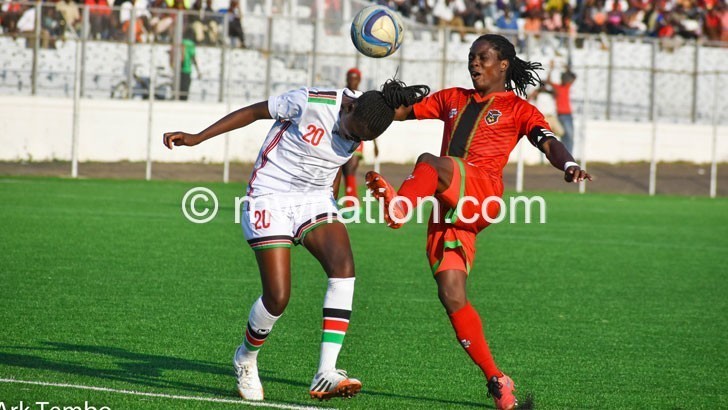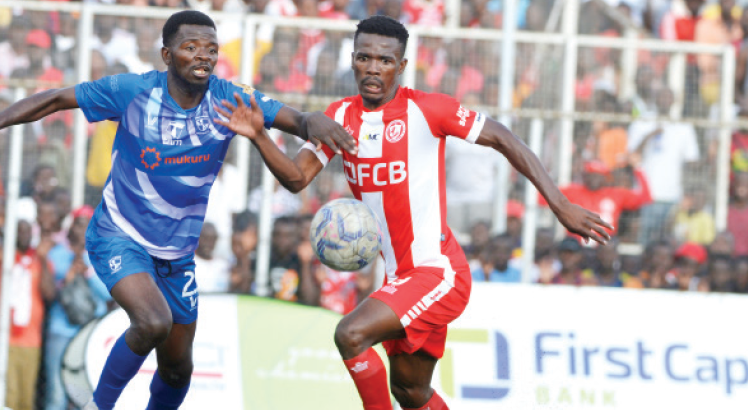‘Poor planning affects Malawi’s Olympic qualification’
Malawi has never qualified for Olympics since it started participating in the games in 1972.
The performance of judoka Harriet Boniface, archer Arenao David, swimmers Fellipe Gomez and Jessica Makwenda at the Tokyo Olympic Games has shown that a lot must be done for Malawi to do well at the Games.

David lost on Tuesday to a Korean opponent while Harriet was knocked out in the first round by a Brazilian.
Gomez failed to match his personal best of 23.99 seconds when he clocked 24 second while Makwenda reduced her record time of 29.64 seconds when she clocked 28.96 seconds on Friday.
However, the athlete Asimenye Simwaka’s performance in the Women’s 100 metres Preliminary Round Heat 3 on Friday raised hopes that she could win a medal. She broke her record twice by doing 11.76 seconds in the preliminary round and clocked 11.68 seconds in the quarter-finals.
Athletics coach Pachisi Nyasulu was quoted by our sister paper Weekend Nation yesterday as having said the athlete, who is also a national women’s football team player, has qualified for Africa Athletics Championship next year.
Since Malawi first participated in the world’s biggest sports festival, it has been sending athletes on solidarity—a provision that the International Olympic Committee makes to member countries to promote universality as well as fair play.
This is contrary to most southern African countries who have produced qualified athletes and went on to win medals, such as Mozambique’s Maria Mutola (athletics), Namibia’s Frank Fredricks (athletics), Tanzania’s Filbert Bayi (athletics), South Africa’s Caster Simenya (athletics), Zambia’s Samuel Matete (athletics) and Keith Mwila (boxing).
Zimbabwe has won three gold medals, four silver medals and one bronze in Olympics.
Malawi’s failure to produce qualified athletes comes against initiatives and efforts that the country’s Olympic sport governing body Malawi Olympic Committee (MOC) put in place.
In an interview from Scotland on Wednesday, former Olympian Catherine Chikwakwa-Chunda, who broke her record at Sydney 2000 Olympic Games, said it is a pity that the country is failing to put in place strategies to produce a qualified athlete.
However, Chikwakwa-Chunda, who won a silver medal at the World Junior Championship in Italy in 2003, blamed both athletes and administrators for not aiming higher.
She said: “As an athletes, we always blame administrators, but our athletes should set goals to achieve that. In the run up to Sydney 2000 Olympics, I was not on a scholarship, but I was determined to beat anyone and win. That’s why I was selected to go.”
She also urged the government to motivate potential athletes to participate in international competitions.
“I know we are not financially sound, but if there are no races for athletes to practice in, they cannot qualify. If there are no incentives, the athletes have nothing to fight for,” said Chikwakwa-Chunda.
Swimming coach and Malawi Aquatic Union vice-president Yona Walesi, who competed at the Athens 2004 Olympic Games in Greece, blamed Malawi’s poor performance on poor planning and lack of resources.
“This is a system that has to be connected in so many ways besides looking at the athletes performance. Administratively, it is one of the key elements we have to be building up,” he said.
MOC treasurer Henry Sakala, who spoke on behalf of MOC president Jappie Mhango and general secretary John Kaputa as they are both attending the Tokyo Olympic Games, said: “There are many factors affecting our athletes’ failure to qualify, but we will come up with a statement after the Games.”
In a separate interview, former MOC president Oscar Kanjala said it all goes down to lack of strategic planning.
He said: “Olympic Games are elite sports and as such, it is not a one-man show. All stakeholders—government, MOC as well as associations —must get involved.
“Each athlete at the Olympic Games represents a country. We tend to prepare a few weeks before the games. And because we don’t focus on preparations, money is wasted because we know we are going to participate rather than compete.
“We must develop a long-term plan for preparations for the games.”
Athletics Association of Malawi acting general secretary Mzee Makawa said there is no continuity after Olympics.
“Olympic Games are a cycle. That doesn’t happen in all sporting disciplines,” he said.
In an interview, Olympic sport analyst Drake Chithambo said sports administrators should learn from their colleagues in other countries.
“We have administrators who are not exposed. We cannot take a business as usual approach to sports. We need to commercialise it,” he said.
Chithambo also blamed lack of infrastructure in the country, saying the high performance facility at College of Medicine Sports Complex is not full-fledged.
“We still have concrete basketball, volleyball and netball courts.”
He also said sports allocation are done on ad hoc basis.





